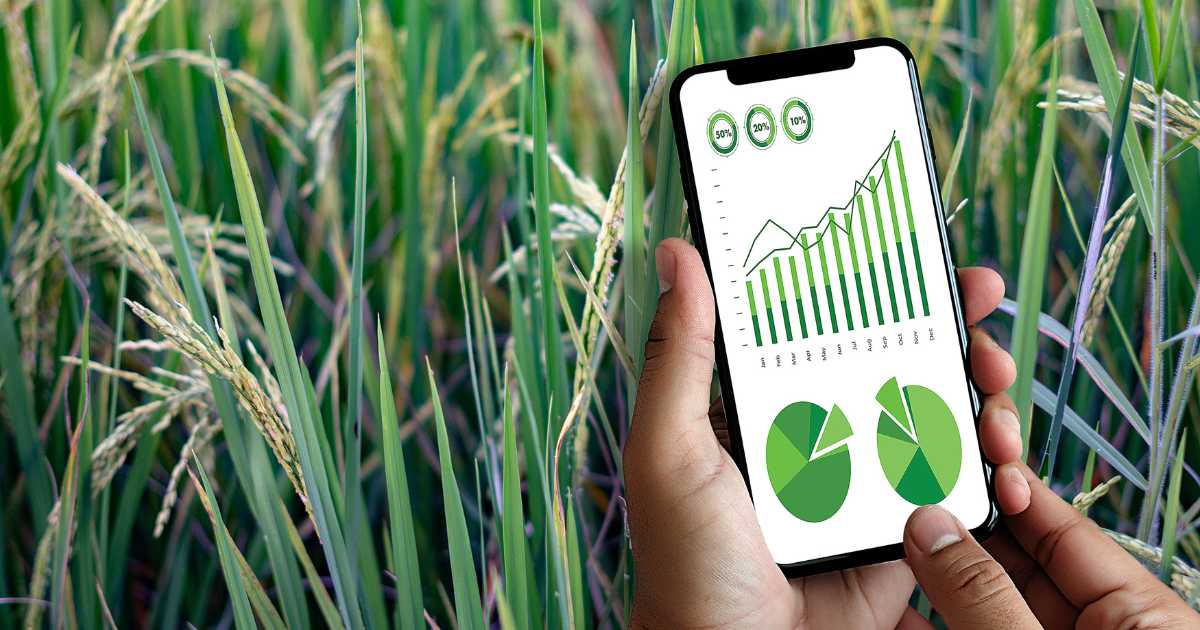
Many precision farming tools are smart farming tools – technologies that were made possible by Industry 4.0. This is often referred to as Agriculture 4.0. It has the capacity to transform agriculture as we know it, but in a country such as South Africa, which sometimes still struggles with basic infrastructure issues, the question remains: Is Agriculture 4.0 a possibility for South African farmers?
The development of smart farming tools that draw on the important elements of precision farming and the fourth industrial revolution emphasises precise analysis, data collection and transmission through tech advancements. It intends to support farmers in making informed decisions that help them run their agribusinesses successfully. Used in conjunction with each other, these tools help increase economic, environmental, and social sustainability. Solutions attain this by:
- Reducing waste by using precise measurements for water or fertiliser applications.
- Improving control over crop losses at the cultivation, sowing and harvesting stages.
- Saving time and money across the season
- Improving traceability across the supply chain
Ultimately, the use of these technologies enables farmers to collect a vast amount of data and process it to effectively use the insight to drive business decisions.
Types of Technology
A multitude of technologies are available in South Africa to help the farmer, or agripreneur, boost profits, increase yield and drive production. In a previous article, we took a closer look at the types of technologies that farmers use, which are smart farming technologies made possible through Agriculture 4.0 advancements. These include:
Drones: Agricultural drones are used for crop monitoring and application of fertilisers and pesticides.
IoT Sensors: Using the Internet, remote sensing transfers information from the sensor to a receiver that can then be accessed.
Artificial Intelligence: More than just your familiar ChatGPT, artificial intelligence uses advanced neural networks to process information, spot similarities or discrepancies, or even automate certain processes.
Data Management: Many brands and software companies have developed data management tools that enable farmers and businesses across the agri-value chain to collect multiple data sets and process it into usable information.
Advantages of Agriculture 4.0
Agricultural companies have noted that farmers who use smart technologies that improve farming also see approximately 30% in savings and 20% more productivity. This alone should make South African agripreneurs pay attention!
Here are some of the benefits of integrating Agriculture 4.0 tools into your farming business.
1. Economic Advantages
Smart farming technologies offer an array of economic benefits. With precise application of all inputs and a greater success for yields, the savings are clear. However, the cost of these technologies is quite expensive, and adding them to your farm might cost an arm and a leg
2. Environmental Benefits
By using agricultural inputs sparingly and combining them with other precision farming practices, farmers can reap the environmental benefits of agriculture that doesn’t cause unnecessary waste.
Because agriculture and the environment are so closely interlinked, farmers need to prioritise the sustainability of farming practices. With this in mind, smart farming tools are designed to benefit soil health, plant care, and improve the environment. Healthier fields mean healthier yields (and a better product for the customer).
3. Worker Benefits
With more and more agricultural technologies arriving on farms, operators who work with the tools daily will also benefit. These tech tools improve their working conditions and also help build their skills.
Disadvantages of Agriculture 4.0
One of the biggest concerns about smart technologies in farming is the risk of increasing the gap in the digital divide.
Due to the high costs of adopting these technologies on a farm, the farmers who can afford these technologies will grow and rely on them more and more. But on the other hand, the farmers who can’t afford them will fall behind in the industry and not be able to compete.
Additionally, farm workers or farmers who are unable to keep up with the advancements will also fall behind in their skills.
Yet, if farmers become more tech-enabled, specifically with Agriculture 4.0 tools, the opportunity then arises for more job creation and advanced skill development.






